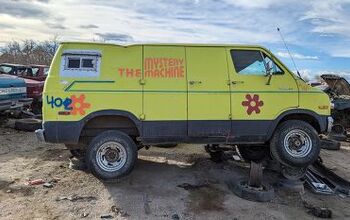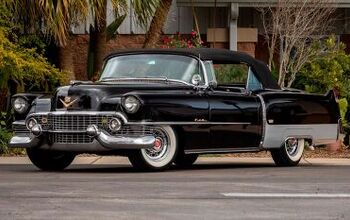Crunch Time for the United Auto Workers (UAW)
By the end of the year, America’s automotive landscape will have changed dramatically. Chrysler Group will have new owners with new ideas (including, perhaps, dissection). Ford may or may not be in Chapter 11. General Motors’ fate is equally unclear. One big gas price spike and it’s all over bar the filing. And then there’s the United Auto Workers (UAW). This is the year the UAW renegotiates its contracts with The Big 2.5. If the union digs in its proverbial heels to maintain the status quo, Detroit’s doom will be delayed, but not prevented. As will their own.
The decisions made this week at Detroit’s Cobo Center will answer that question. The UAW’s quadrennial convention on collective bargaining opens today. About 1500 delegates representing over 800 locals from around the country will convene to discuss a number of issues facing the moribund union. They’ll have two days to establish their stand on issues ranging from contract concessions for healthcare and pensions, to what to do about their dwindling membership. They have two days to decide the future of the American automobile industry.
It won’t be easy. Just as GM is trying to extricate itself from rebate hell, the UAW must try to find a way NOT to give The Big 2.5 large concessions on healthcare, wages and pensions. Although the union’s “historic health care giveback” involved a $2b pay-off, common wisdom says the union is ready, willing and able to help Detroit roll-back their crippling labor costs. We’re going to find out exactly how far the union is willing to go to give aid and comfort to their employers.
That depends entirely on which faction within the UAW is sitting at the table. Although labor unions tout solidarity and the value of a united front, there’s a genuine power struggle going on behind the scenes.
On one side, some union bosses are happily extolling cooperation; they’d like the press, their members and the rest of the car industry to think the UAW is management’s best friend. Jim Graham, president of UAW Local 1112 stated ‘‘Management is not the enemy. They’re trying to do the same thing we are: save plants. The enemy is the Asian market.’’
Yet Graham also admits the UAW wants to get in bed with “the enemy.” He notes the UAW is trying to organize workers in the transplants’ factories. Oblivious to the fact the workers in the non-union Georgetown Toyota plant made more last year on average than UAW workers did in Detroit, he states ‘‘In order to get a decent wage, people have to be organized.’’
While the UAW’s making nice with management and trying to move into enemy territory, they seem to have forgotten that their past demands got them where they– and their employers– are today. The bountiful benefits they demanded (and received) when times were good are the excess baggage dragging down Detroit, now that times are tough. When the concession demands begin, we’ll see how long this new friendship lasts.
This brings us to the other end of the spectrum: hardcore factions within the UAW who want nothing less than a return to yesteryear. Soldiers of Solidarity, comprised mostly of Delphi and GM employees, will picket their own union’s meeting this week. They want the union to take a hard-line stance against wage cuts, pension changes and healthcare concessions.
Believe it or not, the Soldiers don’t believe The Big 2.5 are in dire straits. And they continue to see the company through the prism of class war; why should the fat cats be allowed to take food off their table? Strange but true: there are plenty of union members who’d prefer their employer’s death before personal “dishonor.”
So where does UAW President Ron Gettelfinger stand? On the fence.
"There is a great deal of uncertainty in the auto industry right now, which causes a great deal of concern among our members and their families. We're doing our best to address those concerns – but it doesn't do anybody much good to try to predict the outcome of a bargaining process that hasn't even started yet."
No matter. Gettelfinger knows that it’s make or break time for the UAW, without any clear path to “winning.” If the “modernizers” hold sway and the UAW makes company-saving concessions to save its own skin, the union’s power over its members will diminish. As Sean McAlinden from the Center for Automotive Research said, “What’s at risk here are the core values of the union.”
On the other hand, as Dave Cole from the Center for Automotive Research stated, "The existing situation is not survivable. The choice is, are you going to do something different or are you going to die with the domestic industry."
Whatever happens in the next two days, either way, Detroit will never be the same again.
More by Frank Williams
Latest Car Reviews
Read moreLatest Product Reviews
Read moreRecent Comments
- RHD The analyses above are on the nose.It's a hell of a good car, but the mileage is reaching the point where things that should have worn out a long time ago, and didn't, will, such as the alternator, starter, exhaust system, PS pump, and so on. The interiors tend to be the first thing to show wear, other than the tires, of course. The price is too high for a car that probably has less than a hundred thousand miles left in it without major repairs. A complete inspection is warranted, of course, and then a lower offer based on what it needs. Ten grand for any 18-year-old car is a pretty good chunk of change. It would be a very enjoyable, ride, though.
- Fred I would get the Acura RDX, to replace my Honda HR-V. Both it and the CRV seats are uncomfortable on longer trips.
- RHD Now that the negative Nellies have chimed in...A reasonably priced electric car would be a huge hit. There has to be an easy way to plug it in at home, in addition to the obvious relatively trickle charge via an extension cord. Price it under 30K, preferably under 25K, with a 200 mile range and you have a hit on your hands. This would be perfect for a teenager going to high school or a medium-range commuter. Imagine something like a Kia Soul, Ford Ranger, Honda CR-V, Chevy Malibu or even a Civic that costs a small fraction to fuel up compared to gasoline. Imagine not having to pay your wife's Chevron card bill every month (then try to get her off of Starbuck's and mani-pedi habits). One car is not the solution to every case imaginable. But would it be a market success? Abso-friggin-lutely. And TTAC missed today's announcement of the new Mini Aceman, which, unfortunately, will be sold only in China. It's an EV, so it's relevant to this particular article/question.
- Ajla It would. Although if future EVs prove relatively indifferent to prior owner habits that makes me more likely to go used.
- 28-Cars-Later One of the biggest reasons not to purchase an EV that I hear is...that they just all around suck for almost every use case imaginable.


































Comments
Join the conversation
I agree, the post by mike_i_n_mich had great insight. Guest columnist perhaps?
Unions, they are the cause of all evil in this country. $75 and hour plus benifits to do what? I hope the government doesn't give a dime to these companies and I hope we break every union in the country and start being sensible about how we do work and how we are compansated. Unions are KILLING our country!